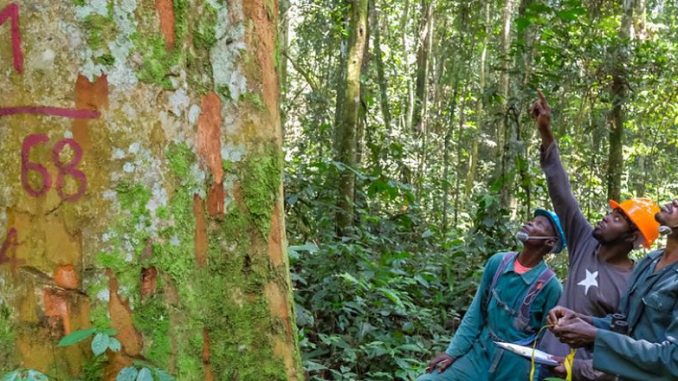
LEEDS, UK, July 3, 2021 (ENS) – A global network of researchers is cooperatively investigating tropical forests wherever they grow on the planet to explore the effects of climate change on the forests and the diverse creatures they shelter. ForestPlots.net, coordinated from the University of Leeds in England, takes in more than 2,500 scientists who have examined millions of trees for this project.
A new research paper published in the journal “Biological Conservation” details the origins of the network, and how the power of collaboration is transforming forest research in Africa, South America and Asia.
The paper includes 551 researchers and outlines 25 years of discovery in the carbon, biodiversity and dynamics of tropical forests.
Professor Oliver Phillips of Leeds’ School of Geography said “Our new paper shows how we are linking students, botanists, foresters and policy-makers with the ForestPlots.net technology developed at Leeds.
“This drives a new model of collective research. This is helping to transform scientific understanding of how tropical forests work – and how they are helping to slow climate change,” Phillips said.
“In this new synthesis we outline how this collaboration has been built, and trace the exciting potential of collaborative science that reaches across the world’s tropical forests to embrace colleagues from all countries and backgrounds,” he declared with enthusiasm.
ForestPlots.net provides a unique place to measure, monitor, and understand the world’s forests, and especially the tropical forests. Established in 2009, it has grown fast to track 5,138 plots in 59 countries, with a network of 2,512 people.
With a focus on the tropics, ForestPlots.net includes over 5.5 million tree measurements from more than 18,000 species. The first was made as long ago as 1939, the latest as recently as last month.
The collaboration is funded by the Royal Society and the UK’s Natural Environment Research Council, the country’s largest funder of independent environmental science, training and innovation.
Professor Phillips said, “Our core approach links long-term, grassroots researchers to generate robust large-scale results. This global, diverse community is measuring thousands of forests tree-by-tree in long-term plots.”
“By connecting tropical researchers together and valuing the key role of the data originator in scientific discovery, our Social Research Network model of research seeks to support the key workers who make 21st century big data science possible,” Phillips said.
ForestPlots.net hosts data from many individual researchers and networks including AfriTRON, ECOFOR, PPBio, RAINFOR, TROBIT and T-FORCES.

Working together equitably, the network has shown that long-term monitoring of forests on the ground is irreplaceable, making scientific discoveries across the globe.
Through large scale analysis, ForestPlots.net researchers discover where and why forest carbon and biodiversity respond to climate change, and how they help control it with a billion tonne annual carbon sink.
The new research paper, “Taking the pulse of Earth’s tropical forests using networks of highly distributed plots,” provides a vision for more integrated and equitable monitoring of some of Earth’s most precious ecosystems.
The collaborative paper is timely as it highlights the impact the University of Leeds and research partners have made to the understanding of carbon dynamics in tropical forests ahead of the global climate conference COP26, which takes place in Glasgow, Scotland in November.
Featured image: Technicians at work on an Afrormosia plot in Yangambi, Democratic Republic of the Congo. This endangered tree species, commonly called African Teak, is listed in CITES Appendix II, and is on the IUCN Red List of Threatened Species. Trade is heavily regulated and mostly illegal. Nov. 30, 2020 (Photo by Alex Fassio / CIFOR)
© 2021, Environment News Service. All rights reserved. Content may be quoted only with proper attribution and a direct link to the original article. Full reproduction is prohibited.



